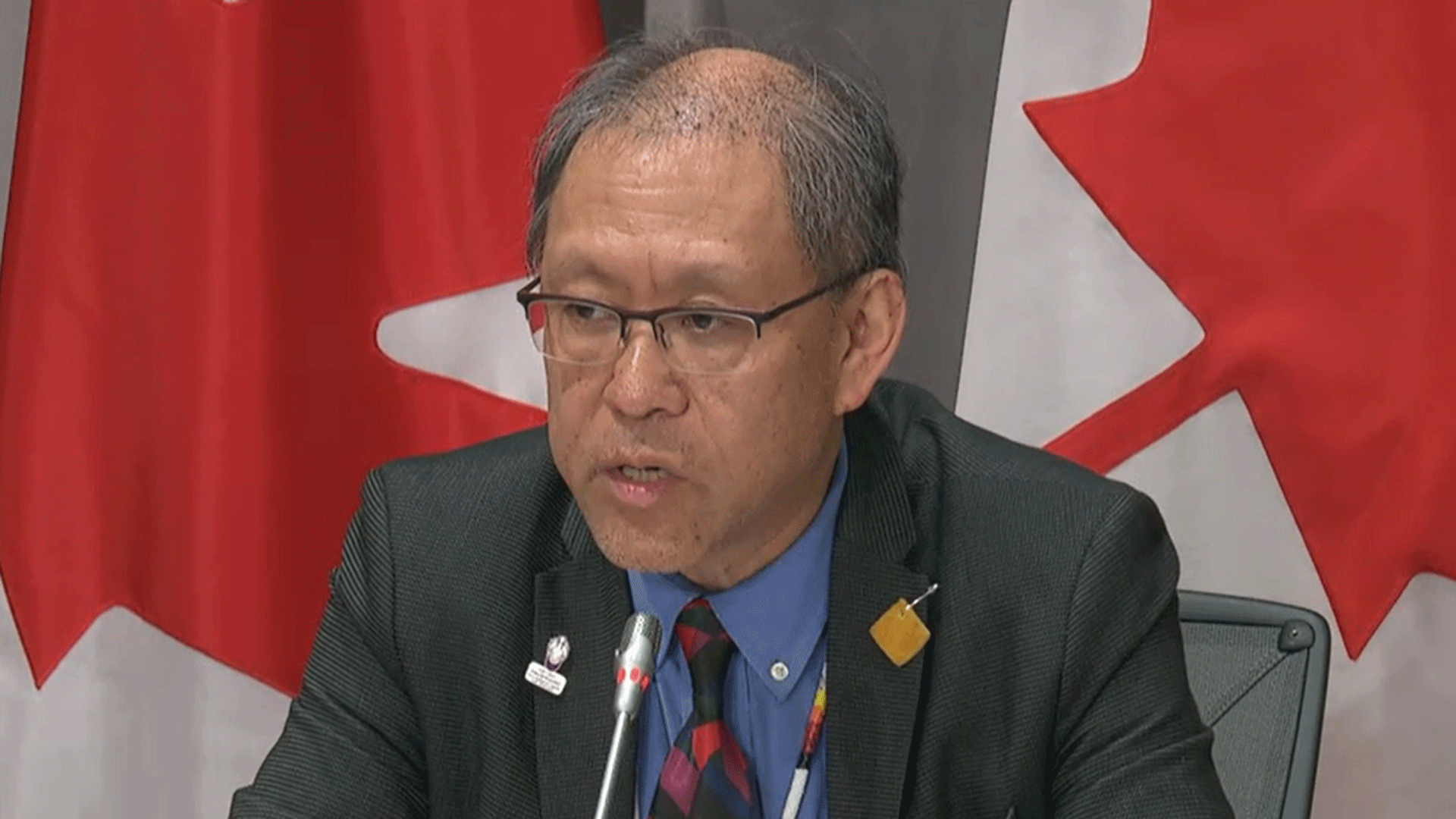The Minister of Indigenous Services Canada (ISC) Marc Miller said Friday that he was disgusted, pissed and outraged by recent police violence against Indigenous people but offered few details on what will be done to stop it.
“A car door is not a proper police tactic. It’s a disgraceful, dehumanizing and violent act,” Miller said of a video that surfaced early this week of an RCMP officer arresting a man in Kinngait (formerly Cape Dorset), Nunavut, by hitting him with the open door of a moving police vehicle.
Miller was asked to deliver a message to Indigenous communities after Chantel Moore, 26, a First Nations woman originally from B.C., was shot and killed by local law enforcement in Edmunston, N.B., on Thursday.
“I don’t understand how someone dies during a wellness check,” Miller said. “When I first saw the report, I thought it was some morbid joke. And you look at it and you say, ‘Yes, there’ll be an independent investigation.’ But frankly along with many Canadians, Indigenous peoples living in Canada, politicians, I’m pissed. I’m outraged. There needs to be a full accounting of what has gone on. This is a pattern that keeps repeating itself.”
Outside investigations have been called in both instances.
“We need to let the independent investigation take its course,” the minister said. “There needs to be a full accounting. I want answers, Indigenous peoples want answers, Canadians want answers and we expect them quickly.”
But when asked what his department plans to do to stop future violence, Miller didn’t specify.
“Politicians don’t control the police force. That is absolutely not an excuse for impunity,” he said. “We work hand-in-hand with the minister of Public Safety who is responsible for policing and responsible ultimately for the actions and policy of the RCMP.”

On Thursday, APTN News asked Public Safety Minister Bill Blair’s what steps his department is taking.
In a written statement, Blair’s office pointed to a number of initiatives introduced over the years to reduce the overrepresentation of Indigenous people in the correctional system but didn’t say whether anything will be done about systemic racism and discrimination.
“The government has also made mandate commitments to expand diversion programs to keep at-risk youth out of the criminal justice system, make drug treatment courts the default option for first-time non-violent offenders, and introduce legislation to implement the UN Declaration on the Rights of Indigenous Peoples,” press secretary Mary-Liz Power said.
Miller was joined by officials from Indigenous Services to offer an update on COVID-19.
He reported that 213 of 225 confirmed cases of the novel coronavirus on First Nations reserves have recovered as have all 16 cases in Nunavik in northern Quebec.
Despite the slow in new reported cases, ISC Chief Medical Officer Dr. Tom Wong encouraged communities to remain cautious and continue following public health advice. He said local leaders should observe the situation in surrounding communities and industrial facilities like factories, mines, plants and so on.
“It is very important that the decision has to be determined by the local community and the local community leaders because one size doesn’t fit all. There could be places in Canada where there’s very hot and increasing number of viral transmissions. Those have to be taken into account,” said Wong.
Miller’s comments came prior to a planned demonstration in Ottawa in solidarity with the Black Lives Matter movement following the police killing of George Floyd in the United States. The nation’s capital saw a wave of demonstrations months ago after raids by RCMP on Wet’suwet’en territory and by OPP soon after at Tyendinaga, which the minister also reflected on.
“We saw the real fear that was experienced at Tyendinaga where I felt safe around police forces and they didn’t. I can’t speak for them. I can’t speak for Indigenous peoples,” he said.
“But you can see it. It’s palpable. It’s painful. Police serve Canadians and Indigenous peoples of Canada, not the opposite. And it’s something that we need to reckon as a society as we look south to the disgraceful acts that are occurring down there,” he said.









